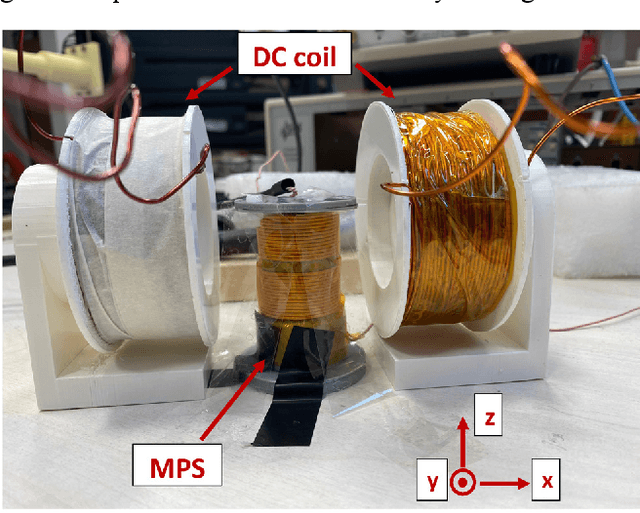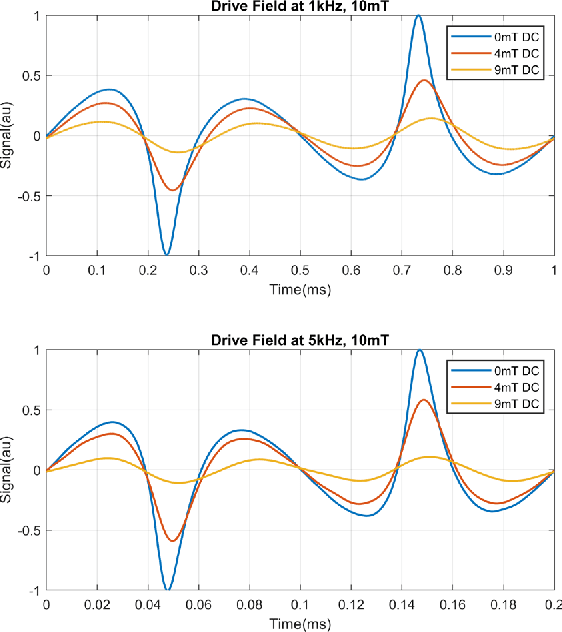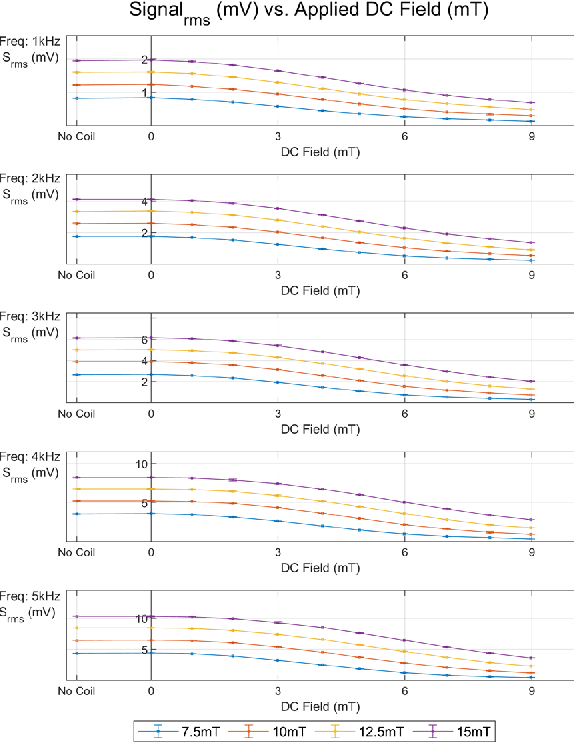Asli Alpman
Vector Modulator Based Active Compensation of Direct Feedthrough in Magnetic Particle Imaging
Feb 13, 2024Abstract:In magnetic particle imaging (MPI), simultaneous excitation and signal acquisition leads to direct feedthrough interference. While this interference can be mitigated up to some extent with passive compensation, its time-varying nature necessitates active compensation methods to achieve the sensitivity levels needed for applications such as stem cell tracking. We have recently proposed an active compensation technique for MRI, which uses a vector modulator and a lookup-table-based algorithm for reducing the direct feedthrough in the analog domain. Here, we adapt this technique to MPI, demonstrating a successful recovery of the fundamental frequency and a significant increase in detection sensitivity.
Vicinity Effects of Field Free Point on the Relaxation Behavior of MNPs
Nov 30, 2021



Abstract:In Magnetic Particle Imaging (MPI), the distribution of magnetic nanoparticles (MNPs) is imaged by moving a field free point (FFP) in space. All MNPs in close vicinity of the FFP contribute to the signal induced on the receive coil. The relaxation behavior of these MNPs are subject to a DC field due to the selection field (SF). In this work, we investigate the effects of the DC field on the relaxation behavior of the MNPs, with the goal of understanding the differences between the measured relaxations in Magnetic Particle Spectrometer (MPS) setups vs. MPI scanners.
 Add to Chrome
Add to Chrome Add to Firefox
Add to Firefox Add to Edge
Add to Edge